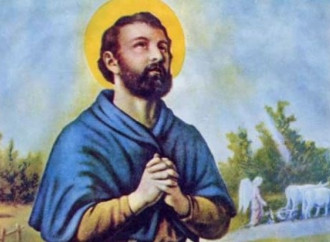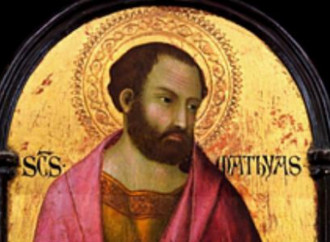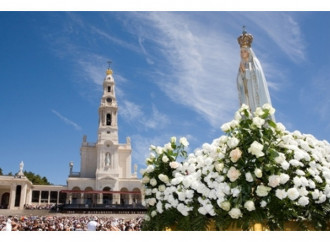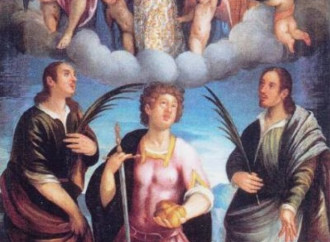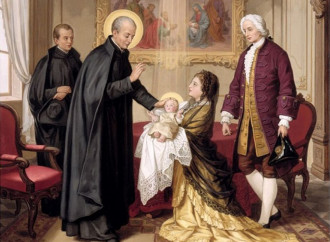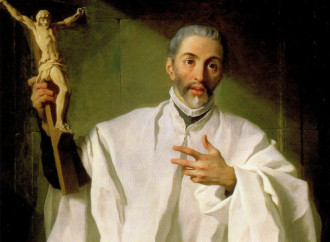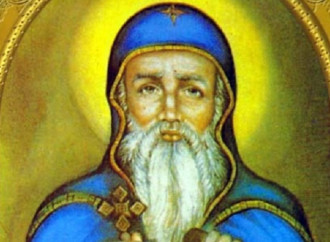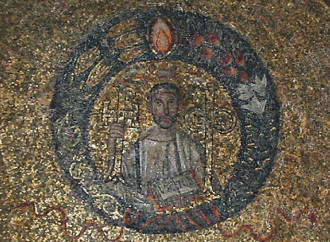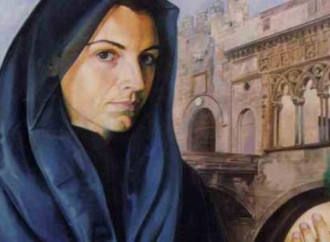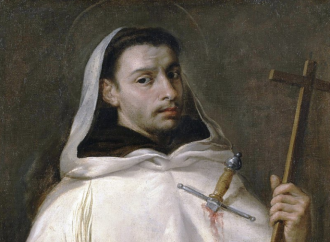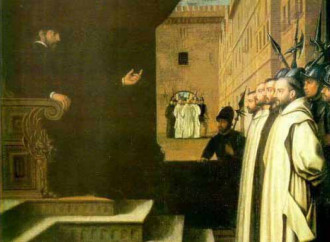Saint Isidore the Farmer
From Spain his cult has spread almost everywhere. Therefore today there are many places where St. Isidore the Farmer (c. 1082 - c. 1172), Isidro Labrador in Spanish, is invoked as patron saint of farmers and crops.
Saint Matthias
The apostolic nature of the Church is particularly evident on the feast of St. Matthias, who was called to replace Judas Iscariot in the time immediately following the Ascension. The initiative was taken by Peter, who thus began to exercise the supreme ministry to which Jesus had called him.
Our Lady of Fatima
On May 13, 1917, while they were grazing their flock at the Cova d'Iria in the Fatima area, 10 year old Lucia dos Santos, 9 year old Francisco and 7 year old Jacinta Marto saw a Lady dressed in white appear.
Saints Nereus and Achilleus
Nereus and Achilleus were two Roman soldiers who converted to Christianity. Their martyrdom, according to historians, probably took place around 300, during Diocletian's persecutions.
Saint Francis De Geronimo
“Return to Christ!”, Saint Francis De Geronimo (1642-1716) admonished during his missions in the streets of Naples. This famous preacher had the gift of prophecy and several miracles were attributed to him during his lifetime.
Saint John of Avila
Mystic and Doctor of the Church, precursor and advisor of the Council of Trent, model for priests and a “prophetic figure”, as Paul VI called him when he canonized him in 1970. Saint John of Avila (c. 1500-1569) was all of these.
Saint Pachomius
Saint Pachomius (c. 292-348), generally considered the founder of cenobitic monasticism, achieved several records in the history of Christianity. These records are all the more surprising considering that he was born of pagan parents: proof of how Providence works wonders through those who give their full acceptance to the divine will.
Saint Victor
Saint Ambrose's piety towards the martyrs accounts for much of the popularity of the cult of Saint Victor (†303), one of the most beautiful figures to have been witness to Christ during the Great Persecution, to the point of giving up his life. Ambrose, bishop of Milan since 7 December 374, spoke of him in the Expositio evangelii secundum Lucam and in the hymn Victor, Nabor, Felix pii.
Saint Rosa Venerini
Among the great figures of Christian pedagogy is Saint Rosa Venerini (1656-1728), the founder of the Maestre Pie (Pious Teachers). She focused on giving girls a good education, together with the teaching of the truths of faith and morals.
Saint Dominic Savio
The world could become an anticipation of Paradise if only care were taken to teach and have children read the life of St. Dominic Savio (1842-1857), the little giant of holiness who blossomed fully at the school of St. John Bosco.
Saint Angelo of Sicily
Saint Angelo of Sicily (c. 1185-1220), also known as “of Jerusalem” because of his birthplace, was born in the Holy City from Jews converted to Christianity. After the death of his parents, he and his twin brother John entered the monastery of Mount Carmel, whose spirituality was inspired from the beginning by the example of the Blessed Virgin and the prophet Elijah.
Saints John Houghton, Robert Lawrence, Augustine Webster, Richard Reynolds
The saints remembered today were the first to suffer martyrdom for refusing to take the oath to the Act of Supremacy of 1534, which declared King Henry VIII supreme head of the Church of England. These were the Carthusian Protomartyrs John Houghton, Robert Lawrence and Augustine Webster and the Brigidine monk Richard Reynolds, all martyred on 4 May 1535.
